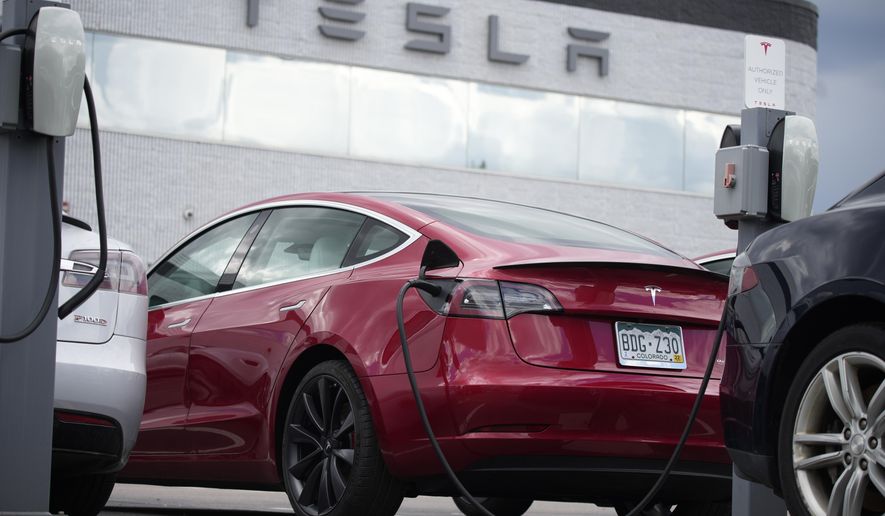Democratic lawmakers are renewing their calls for taxing corporate profits after revelations that Tesla will pay nothing in taxes to the federal government, despite making nearly $6 billion in profits last year.
Sen. Elizabeth Warren, Massachusetts Democrat, said the revelations about Tesla’s taxes are troubling, especially because the company has received millions in government subsidies.
“After years of government support, Tesla had its most profitable year ever, but it won’t contribute a dime in federal taxes,” Ms. Warren said. “The freeloading must end — and I’m fighting to close international tax loopholes and establish a corporate profits minimum tax.”
Tesla’s annual filing with the Securities and Exchange Commission indicates the company reported a net income of $5.5 billion in 2021. It will wind up paying only $9 million in state taxes and zero in federal because of features in the current tax code.
Tesla, in particular, claims that its domestic operations lost $130 million last year before taxes. When accounted for similar losses over the past decade, the company was able to write off most of its profits for last year.
Tesla did not immediately return requests for comment from The Washington Times.
Democrats, like Ms. Warren, say the write-offs are a result of the 2017 Tax Cuts and Jobs Act passed under former President Donald Trump.
“The GOP slashed taxes for corporations shifting profits and jobs overseas,” Ms. Warren said. “I’m going to keep fighting to stop giant corporations from using scams and loopholes to avoid paying a fair share.”
To ensure companies like Tesla pay more in taxes, Democrats are proposing a 15% tax on corporate profits. The flat rate would apply to companies that publicly report more than $1 billion in profits over three years.
Proponents say the new tax would target more than 200 U.S. companies, raising an estimated $300 billion to $400 billion over the next decade.
A similar proposal was included in Mr. Biden’s $1.75 trillion social welfare and climate change bill last year, but the overall package failed to pass.
Democratic lawmakers are eager to revive the spending package in some format. For the deal to go through, however, all 50 Democrats will be needed for it to pass along party lines.
As part of such negotiations, Democrats are pushing an expansion of taxpayer subsidies for electric vehicle manufacturers to combat climate change. The expansion would likely only add to Tesla’s benefit.
• Haris Alic can be reached at halic@washingtontimes.com.




Please read our comment policy before commenting.